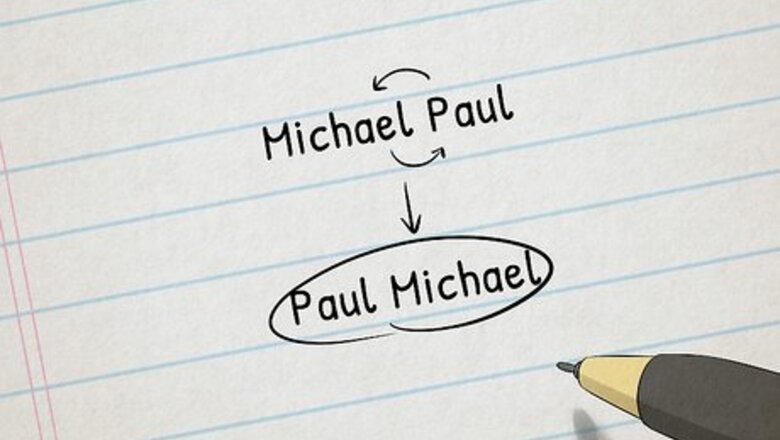
views
Creating Unique Names
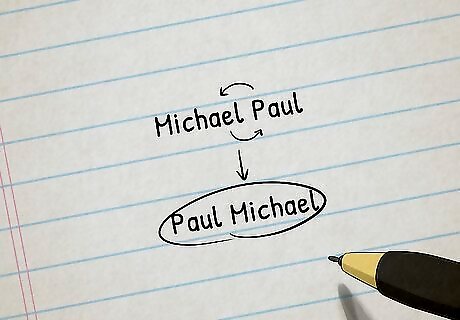
Use a first name as a surname. Since first and last names usually sound very different, breaking this tradition would make your character stand ever so slightly apart. For example: Anna Joey, Robert Gideon, Paul Michael. This is a very subtle approach and would make the most sense for a story that unfolds in a time and place that's similar to your own. Some names can be both surnames and forenames, like: Curtis, George, Paul, Jordan, Logan, Dylan, Wilson, Kerry, Owen, Keith, Austin and Oliver.
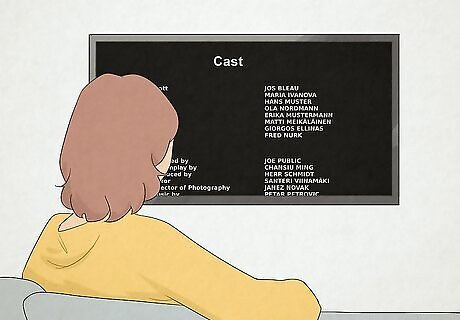
Look for names in unexpected places. Watch the credits of a TV show or film; a lot of uncommon names and name combinations can be found there. When you walk, bike, or drive around, take note of the street names. You might even borrow the name of a foreign city, a distant nebula, or a rare plant. Because this is a broad approach, it could be applicable to a wide variety of genres as well as male or female characters.

Find an unusual name in a book. Flip through the telephone directory or a guide on baby names. In particular, books on naming babies have a wide variety of uncommon names and interesting spelling variations. For example: Razilee, Kadiah, Joval, Jantanie, Keryl, or Kaline. If you want to be inspired by both a name and a character, check out a mythology book from the library; however, unless you want something obvious (ex. Athena), don't go with Norse, Greek, or Latin mythology. Make sure that the name is still pronounceable. Keryl, Razilee, and Genoviah are pronounceable with little effort, but nobody wants to have to try to pronounce Kazlistynez, no matter how unique it is.
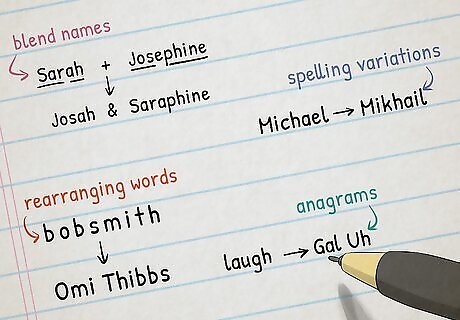
Create a name from other words. J.K. Rowling, for example, is said to have created some of the names in Harry Potter by first describing a character and then creating an anagram from the descriptions. There are a number of strategies that you could use to engineer such a name. For example: Blend common names together. So, Sarah and Josephine could become Josah and Saraphine; Garrett and Adrian could become Adriett and Garran; etc. Try different spelling variations. Substitute Mikhail for Michael, Gaebriel for Gabriel, etc. Rearrange your own (or a friend's) name. If your name is Bob Smith, scramble the letters to get something like Omi Thibbs. Your friend Eileen could be Neelie, Annabel could be Belanna, and so forth. Create anagrams from common words. For example, laugh can be Gal Uh and jump can be M Puj. You can also use this technique to make a name that fits a character's personality. So, the anagram of laugh, Gal Uh, could be a good name for a comedian and the anagram of jump, M Puj, could be a good name for a high jumper.

Invent a name at random. If you want something truly unique, give up basing your name in anything you're already familiar with and try to invent something completely new. This might be especially appropriate for a sci-fi or a fantasy story that doesn't fit your current cultural context. Alternatively, you could invent names for each of the characters but have one character with a traditional name that will make them distinctive from the rest. Type a random string of letters in a Word document, then select a set that seems promising, and rework them to create something you like. Or, you might cut individual letters out of a magazine, throw them into the air, and choose a combination based on how they fall to the floor.
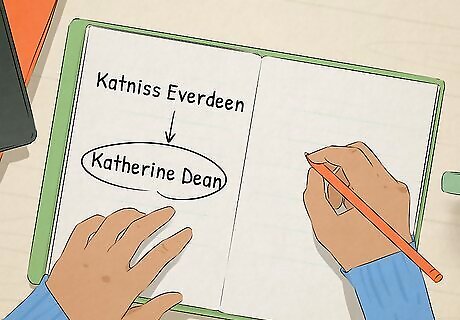
Name characters after your favorite character. But try not to make it too obvious, as you don't want to directly rip off an existing character's name. For example, if you want to name your character after Katniss Everdeen, don't just name your character Katniss Everdeen, as this is not only unoriginal, it is also against copyright laws. Instead, try to create names similar to the existing name, such as "Katherine" instead of "Katniss", or "Dean" instead of "Everdeen.” You can also use celebrity names to create new names by mixing up or combining the names. For example: Justin Bieber and Kate Alexa could become Jexa Kelbeir.
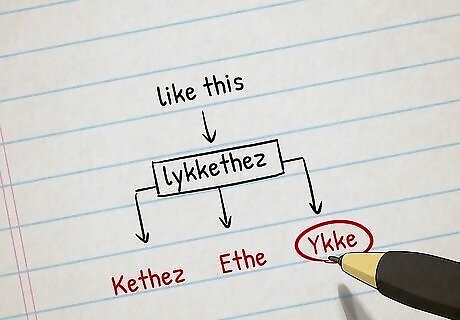
Adjust or misspell existing words. Take a word or phrase and misspell it to create a new name. For example, misspell “like this” so it appears as: lykkethez. Then, choose an interesting letter combo from the results. For example, Kethez, Ethe, or Ykke. Type a few lyrics from a song without spaces to find interesting combinations. For example, 'All we are is the wind' could become Llwea, Arei, Isdus, Hewin, etc.
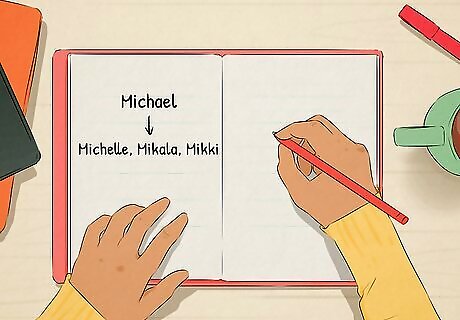
Change the gender of the name. Change a male name to fit a female or female name to fit a male. Keep in mind not all names have opposite-gender equivalents.
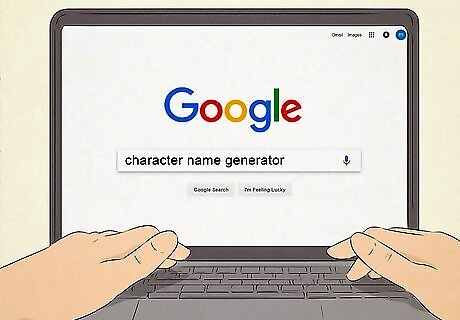
Look up names. If you research names on a name generator (meant for baby names, but still useful), you will likely come across one name or several names that could work for your character.
Using a Letter (or Letters) You Like
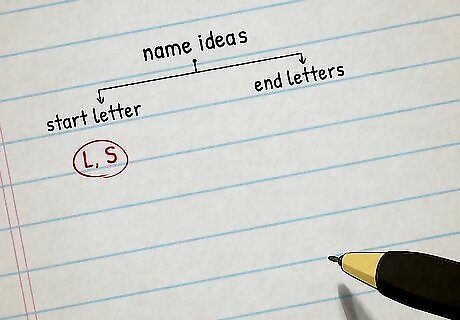
List letters that you'd like to have in the name. If you're unsure, pick one of your favorite letters. For example, you may want a character with the letters L and S in their name, because you like how those letters sound or, feel they would fit the character's personality.
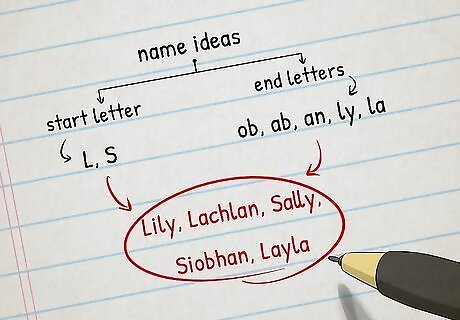
Pick a name ending. Common name endings for girls are: a, bell, na, ly, ie, y, line, etc. Common name endings for boys: ob, ab, an, ly, etc. Pick one you like, or make one up!

Make the name something you like, or the first thing you see when you look up from your screen or out your window. If the thing you pick/see isn't a good jumping off point for a name, think of synonyms for the thing. For example, if you are staring at the moon, think of a synonym, such as “celestial body”, which could become the name “Celeste”.
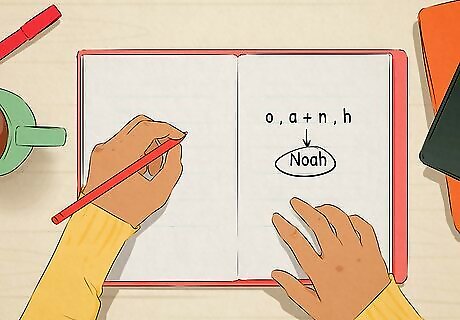
Add more letters to the letters you like. You may like the letters “o” and “a”, and could add a “n” and “h” to make “Noah”. If the name you come up with sounds clunky, add more letters, but don't overdo it.
Finding a Name that Suits Your Character
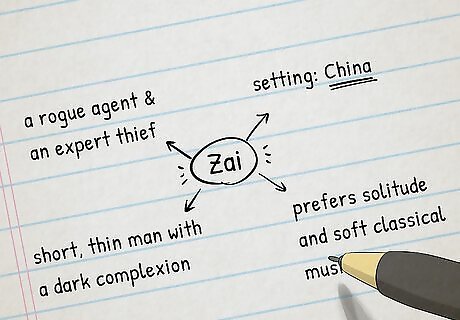
Use a name that fits the setting of your story. Pick character names that correspond with the world, time frame, and/or country where your story is set. It will add to the believability of your story if the character names sound appropriate for the setting. For example, a story set in China will likely have different character names than a story set in South Africa. Another technique, used by John Braine, is to use place names from the region or area the story takes place in.
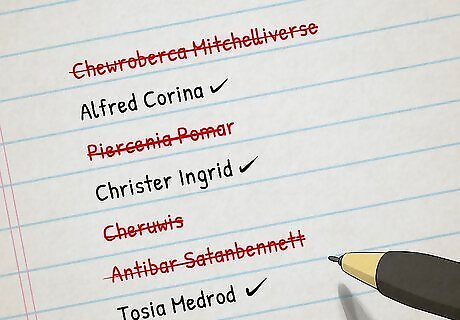
Choose a name that is easy to pronounce. Most readers don't have the patience to try to decipher a character name every time it's mentioned. A hard to pronounce name may also break the flow of the story and take the reader out of the story, rather than immerse them further in it. Look for names that are easy to say out loud and roll off your tongue. Avoid using a lot of strangely spelled names for your characters as this could confuse and alienate your reader.

Think about how the meaning(s) behind a name could work with the characters in your story. The meaning of a name could help you connect the name with one of your characters, based on their personality. Think about how the meaning of the name reinforces the character's personality traits. You could also use a contrasting name to create some friction between the sound or meaning of the name and the personality of the character. For example, a tough girl could be named Grace, or a nerdy kid could be named Brock.



















Comments
0 comment